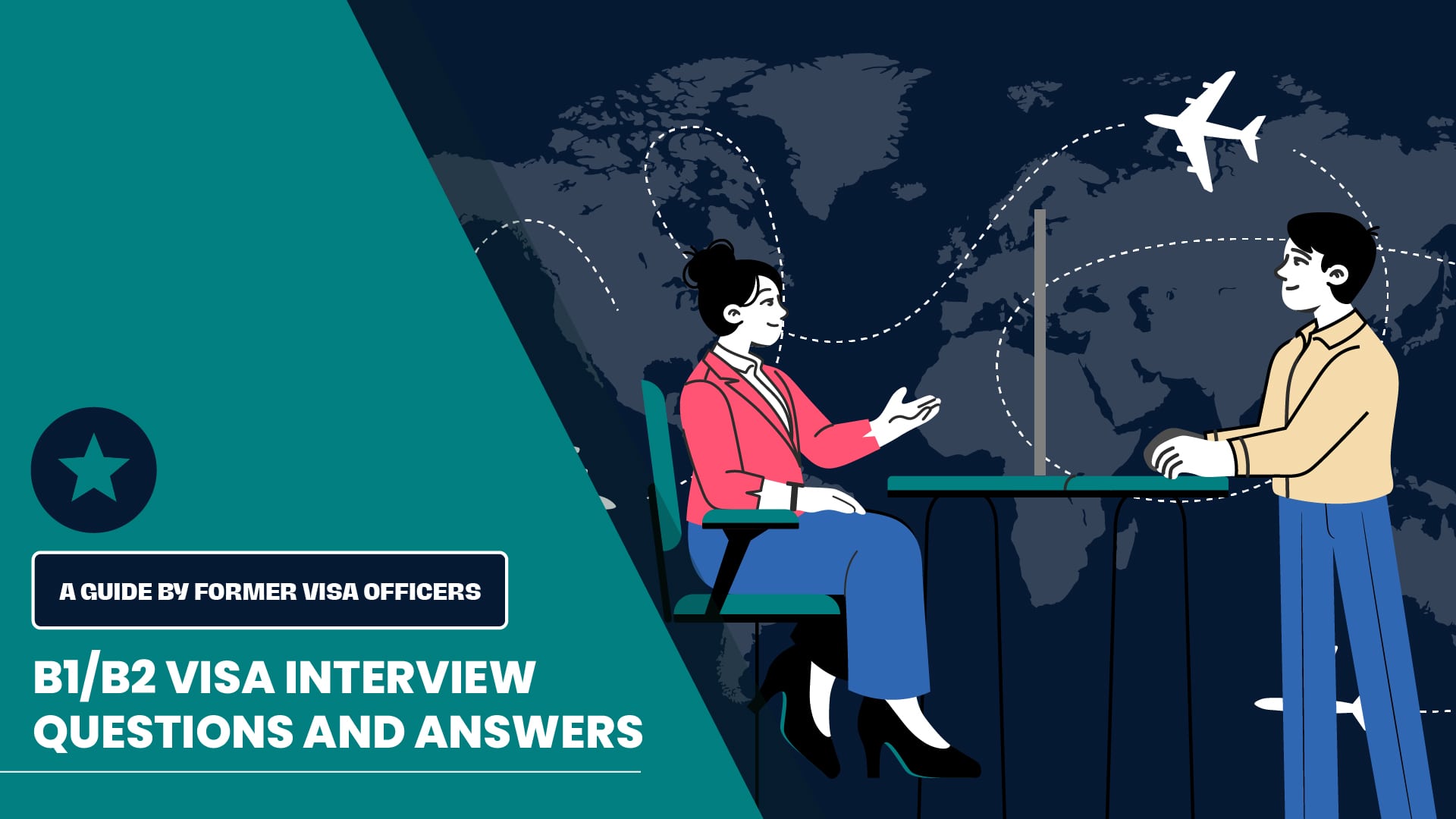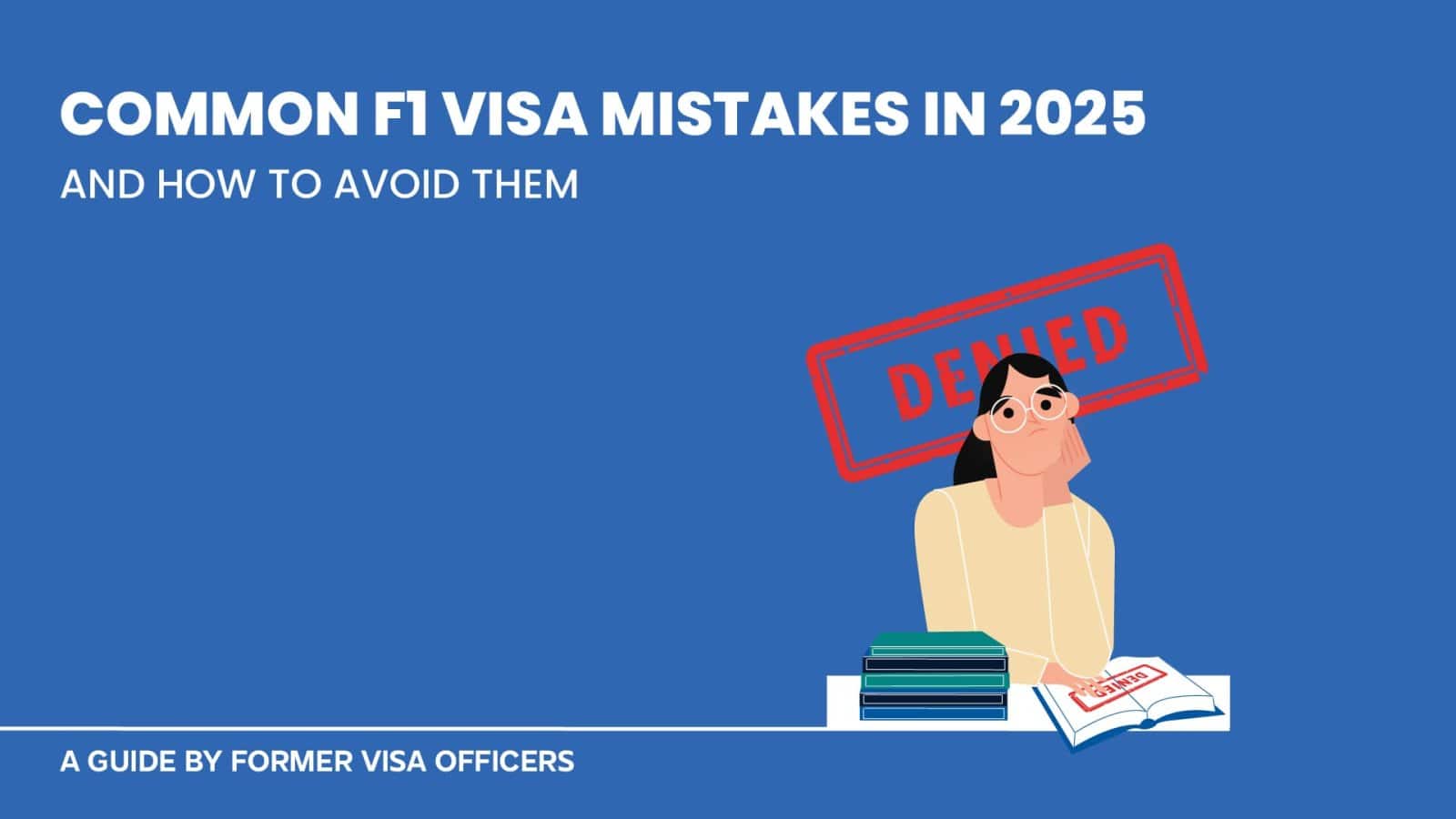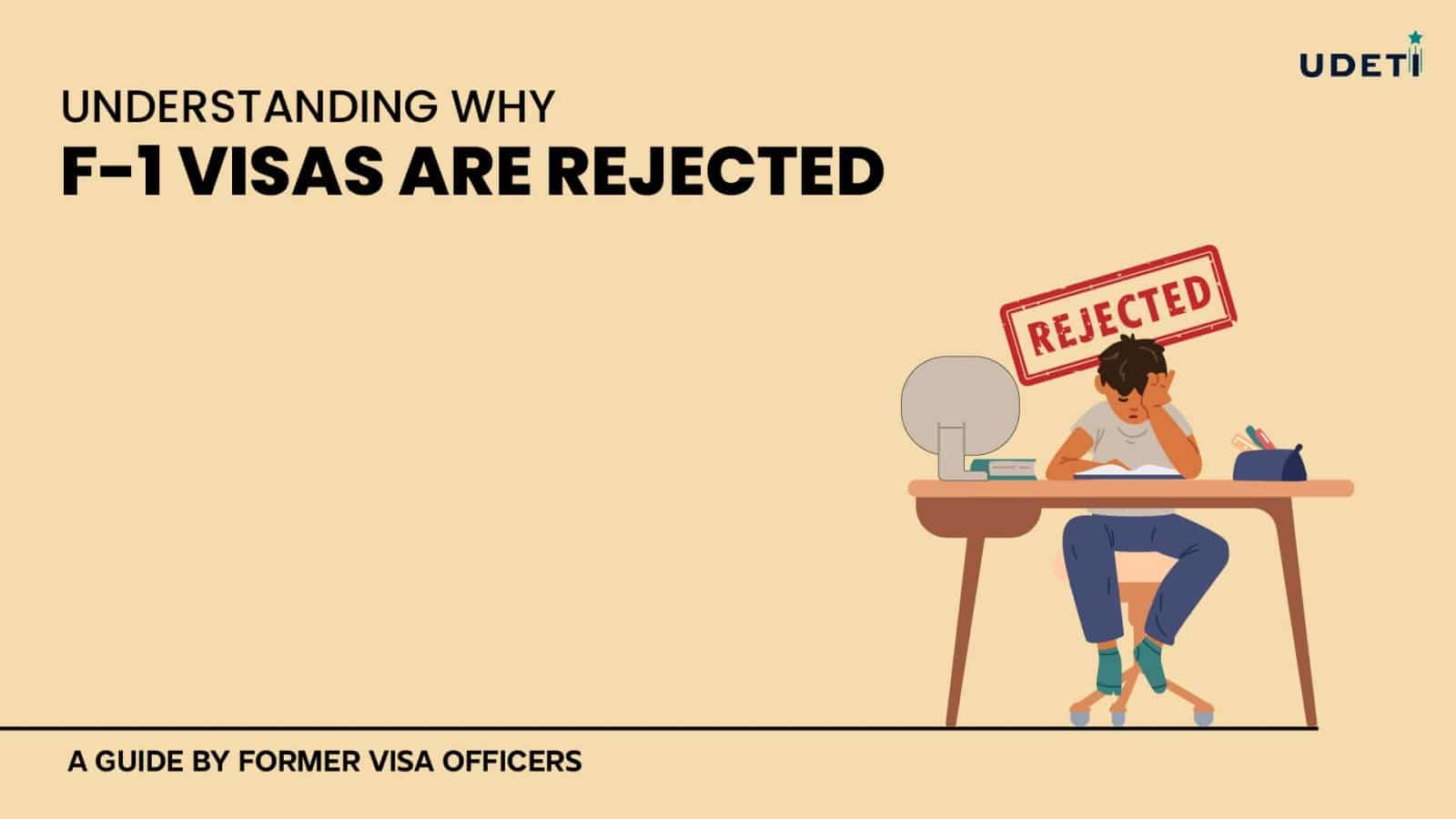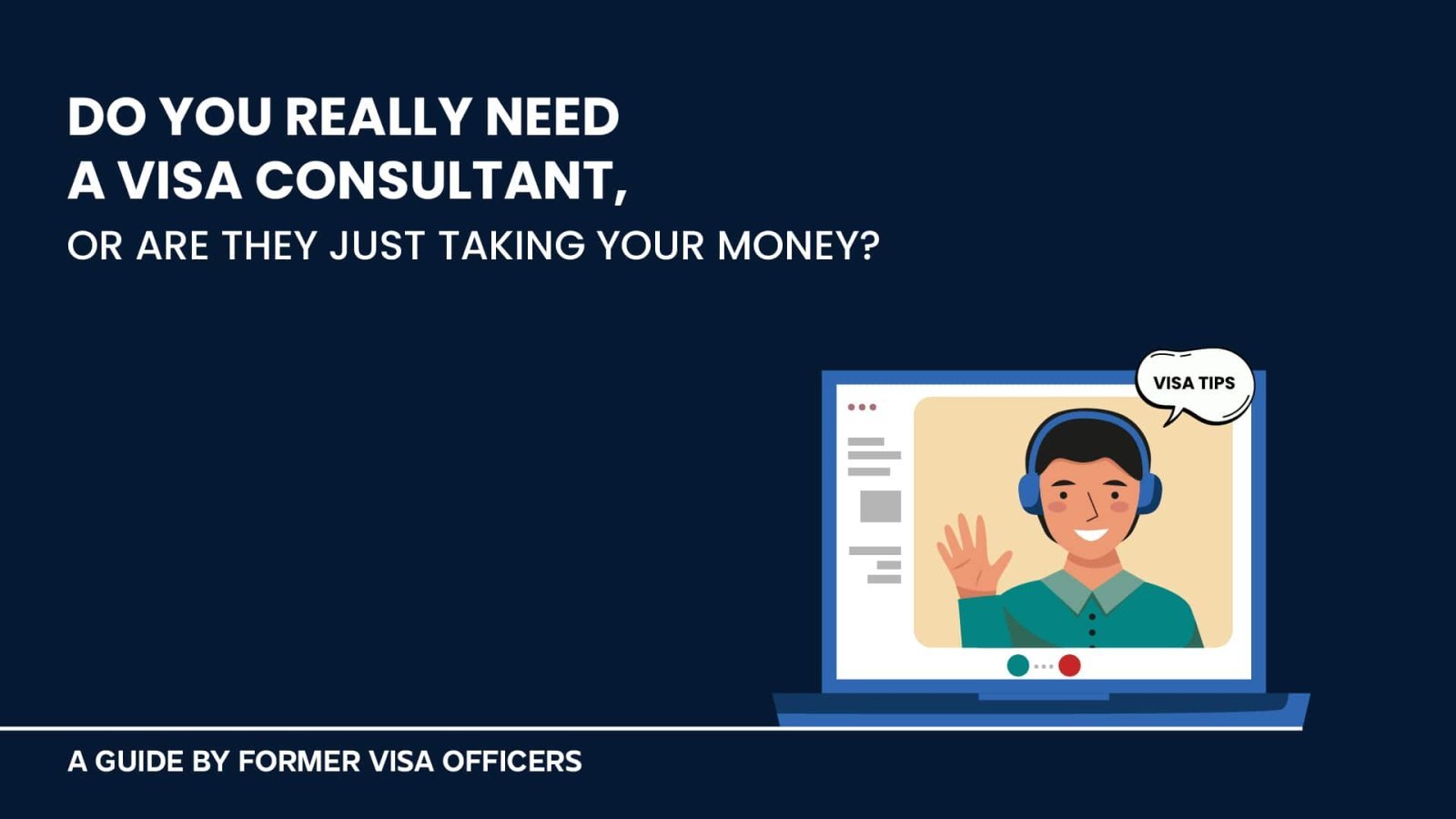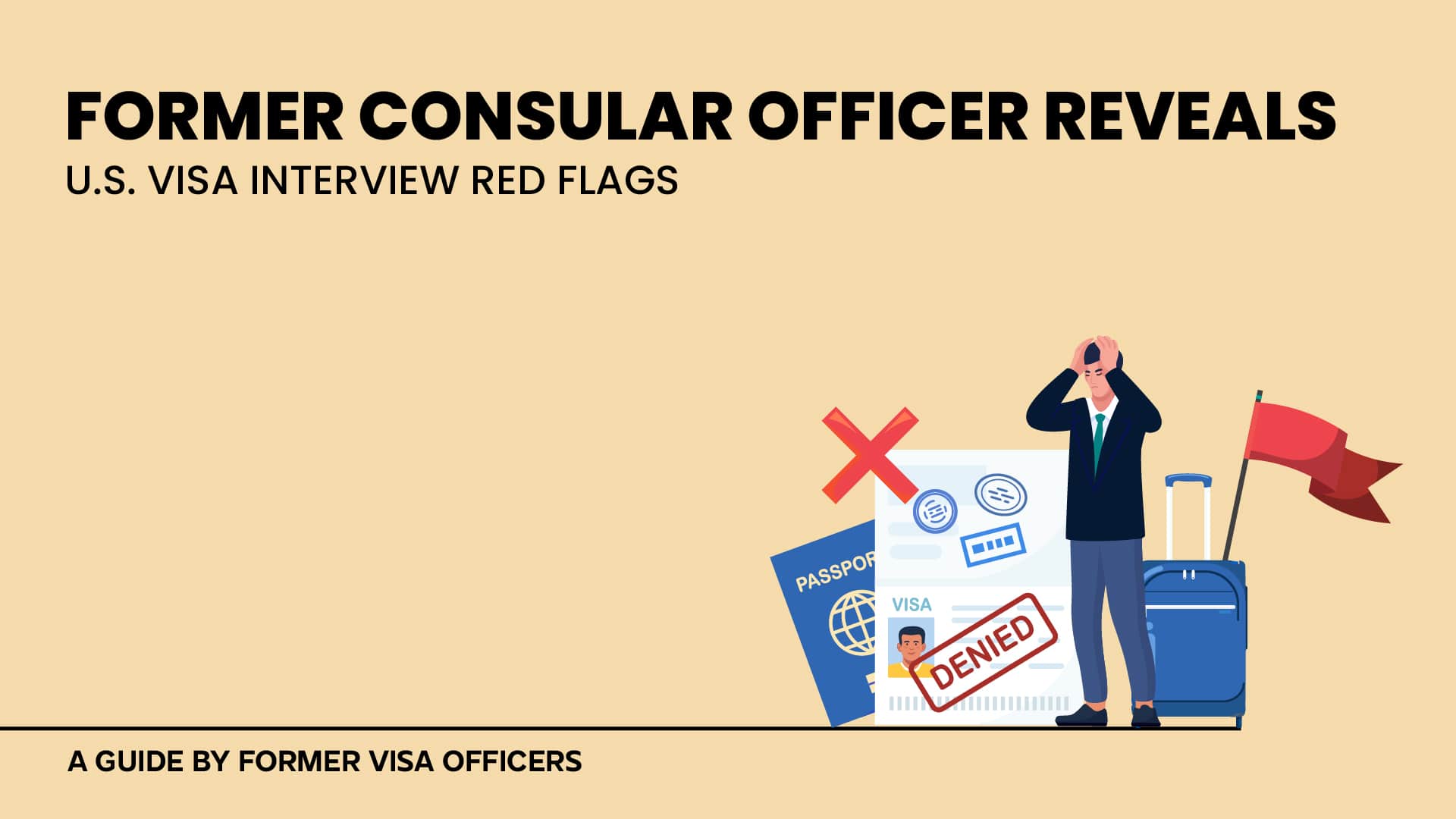If you plan to visit the United States for up to six months, you must apply for a B1/B2 travel visa. A crucial part of this process is the visa interview, where a consular officer will assess your eligibility. The questions asked can be challenging, making thorough preparation essential to maximize your chances of approval.
Understanding the Purpose of the B1/B2 Visa Interview
Consular officers conduct interviews to determine whether your visit is temporary and whether you intend to return to your home country after your trip. They assess this by asking a series of questions to evaluate your ties to your home country, financial stability, and the legitimacy of your travel plans. Proper preparation can help you answer confidently and avoid unnecessary scrutiny.
Preparing for Your Interview
- Arrive early. You may not be called in until 30 minutes before your scheduled time, but it’s best to be prepared.
- Bring all required documents, including your appointment confirmation letter, DS-160 confirmation, and any supporting materials relevant to your visit. Click here for tips on organizing and presenting documents for your B1/B2 visa interview.
- Answer clearly and confidently. Nervousness can raise unnecessary concerns.
Check for a sample invitation letter for a B1/B2 visa application here.
Common B1/B2 Visa Interview Questions
Who Are You Visiting in the U.S.?
Consular officers will ask about the person or organization you are visiting and your relationship with them. Even if you are traveling as a tourist, expect personal questions such as:
- Are you married? If so, when did you get married?
- Do you have children? How many, and what are their ages?
- Are you visiting an expecting mother? Will you stay to assist after the baby’s birth?
- Do you have any other relatives in the U.S.?
- What is the immigration status of the person you are visiting? Are they a U.S. citizen or green card holder?
They may also inquire about your family in your home country to assess the strength of your ties:
- Who do you live with?
- Where do your parents live?
- How many children do you have?
If you are traveling for business, you may be asked about your planned meetings and whether anyone else from your company is accompanying you.
What Is the Purpose of Your Visit?
Be prepared to explain your travel plans in detail. Officers may ask:
- What is the primary reason for your visit?
- What activities do you have planned during your stay?
- Have you traveled for business before?
- Have you visited other countries? If yes, for what purpose?
For business travelers, carrying an invitation letter and a detailed itinerary is advisable.
Where Will You Stay in the U.S.?
Consular officers will ask about your accommodations:
- Will you be staying with relatives or friends? If so, what is their address?
- If traveling for business, has your company arranged accommodations?
Providing precise details about your stay can help establish the legitimacy of your trip.
Why Did You Choose the U.S. for Your Trip?
You may be asked why you chose the U.S. instead of another country:
- Have you traveled to any other countries?
- Why are you planning to visit the U.S. at this time?
- Do you have any special reason for choosing the U.S. over other destinations?
While some questions may seem intrusive, they are standard security measures. Always answer truthfully and calmly.
Timing Your Visit: When Should You Travel?
The officer may assess whether your travel dates are necessary and reasonable. If you plan an extended stay, they will evaluate whether you have sufficient financial support.
- Why have you chosen these travel dates?
- How long do you plan to stay?
- How will you manage your work responsibilities?
Financial and Employment-Related Questions
Consular officers need to ensure that you can financially support yourself during your trip and that you have strong economic ties to your home country. Expect questions such as:
- What is your monthly income?
- Are you employed or self-employed?
- If self-employed, who will manage your business while you are away?
- How long have you owned your business? What is its turnover?
- How will you fund your travel expenses?
- How much do you estimate your trip will cost?
- Why are you spending so much money when your salary is relatively low?
- How much do you have in savings?
- Do you own property or other assets?
- How many cars do you own?
- Does your spouse also work?
If the officer is not convinced of your financial stability, your application may be denied.
Final List of Common B1/B2 Visa Interview Questions
- Why do you want to visit the United States?
- What is the duration of your stay?
- Where will you stay?
- Are you traveling alone or with someone? If alone, why?
- What is your highest level of education?
- Do you own property or assets?
- Do you have relatives or friends in the U.S.?
- Are you married? If so, is your spouse traveling with you?
- Who is covering your travel expenses?
- What is the estimated cost of your trip?
- Will you be using a credit card during your stay?
- Can you provide proof of income and financial stability?
- Are you employed or self-employed?
- Have you taken leave from work for this trip?
- If you own a business, who will manage it during your absence?
- How long have you been at your current job?
- If traveling for business, what will you be doing in the U.S.?
- What places do you plan to visit?
- Have you booked your onward and return tickets?
- Have you previously been denied a U.S. visa? If so, when and why?
- Have you ever overstayed a visa in any country?
Conclusion
The B1/B2 visa interview is designed to assess the legitimacy of your trip and ensure you intend to return to your home country after your visit. In some countries, passing this interview can be challenging.
To improve your chances of approval:
- Be honest, clear, and concise in your answers.
- Prepare your supporting documents in advance.
- Demonstrate strong ties to your home country.
If you are unsure about your responses or have faced prior refusals, we highly recommend working with a former consular officer at UDETI. We can help you review your DS-160, refine your answers, and ensure you feel confident and prepared for your interview.
You can also check some of these tips from a former consular officer to secure a B1/B2 visa.
Good luck!
(This blog post was written by Yvette Bansal, a former consular officer, and Ramesh Vittal Rao, a Senior Content Writer.)
DISCLAIMER:
This blog does not endorse or advocate for any illegal activities. All content presented here is intended for educational purposes only. The viewpoints expressed do not constitute legal advice and are solely based on the writer’s opinions and experiences. Please use the information provided responsibly. Any advice given is of a general nature and should be applied to your specific circumstances with caution and consideration.
Copyright © 2025 UDETI LLC. All rights reserved.

